There is some dispute where this phrase originated, though the favourite is from the world of motor racing.
The Formula 1 team may be gung-ho about winning the Grand Prix. But first they must get everything right to complete the race. Otherwise they have no chance of winning.
The same principle applies to doing fine work or achieving your goals in life. So let’s explore how to get into the habit of being a good finisher.
Clarifying what you
want to finish in your life
Let’s start with the big picture. What do you want to finish in your life? You may say, for example:
“Looking back in later years, I want to have given our children a great start in life, been a loving partner to my spouse, lived in several countries and made full use of my talents.”
Why clarify these long-term aims? It develops the discipline of focusing on the end-goals: the ‘What’.
You can then channel your energy towards achieving these aims. This enables you to get into the habit of finishing both the small and big things in life.
“I did a similar exercise to this one 10 years ago which clarified my priorities,” said one person.
“The exercise was actually called Two Year To Live. It invited me to describe what I would do if I only had that time remaining.
“Caring for my family came first, but then it highlighted several other goals. One was to complete a book that I had spent ages planning to write.
“Seeing this written in black and white increased my sense of urgency. Soon afterwards I began working on the book and went on to self-publish it on the web.”
Hopefully you have more than two years to live, but it can still be useful to clarify what you want to complete.
If you wish, try tackling the exercise on this theme. This invites you to do the following things.
Describe the specific things you want to finish in your life.
Describe the specific things you can do to take steps towards finishing these things.
Describe the specific benefits of finishing these things.
Clarifying what you want
to finish in the next month
Let’s narrow the scope. Looking at your personal and professional life, what things do you want to finish in the next month?
Different people give different answers to this question. Here are the kinds of things they say:
I want:
To finish procrastinating and start exercising.
To fulfil my promise to take my children sailing.
To clear out my garage.
To complete my tax returns.
To have a tough but necessary conversation with a difficult team member.
Looking ahead to the next month may seem a short time, but it can be a useful period to get into the habit of finishing. As we know, getting rid of the clutter in one’s life can also be quite liberating.
If you wish, try tackling the exercise on this theme. This invites you to describe the things you want to finish in the next month.
Getting into the habit
of finishing things
Good finishers are compulsive list makers. They frequently take time-out out to list what they must do the next day and week. List making is only the start, because the words must be translated into action.
If a person does want to work at finishing things, however, it can be useful for them to recognise their ‘prime times’. These are the times of the day when they have most energy.
Organising their day to protect and capitalise on these times, they complete as many of the key tasks as possible.
Building-in time for rest and recovery, they may also use the low-energy times for doing grunt work. Looking back at the end of the day, they reflect on:
The things I have finished today.
The things I want to finish tomorrow.
Making a fresh list, they repeat the process and continue the habit of being good finishers. You will, of course, follow this path in your own way.
Sometimes, of course, it is okay not to finish things. Bearing in mind the pluses and minuses involved, it can then be important to say: “I don’t want to finish it.” Paradoxically, this can be a way of finishing.
“In order to finish first, first you have to finish,” is a crucial principle.
It has implications far beyond driving in a Grand Prix. It is about developing the habit of completing fine work. You are then more likely to finish what you were meant to finish in life.
If you wish, try tackling the final exercise on this theme. This invites you to describe the specific things you can do to get into the habit of finishing things.



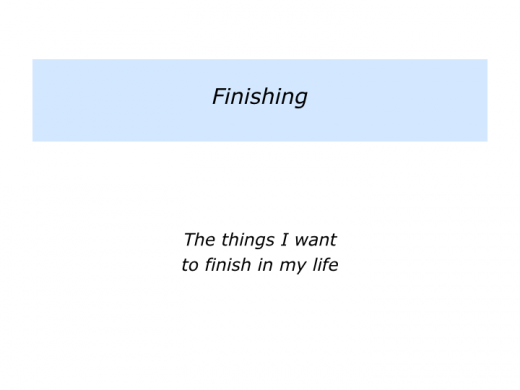
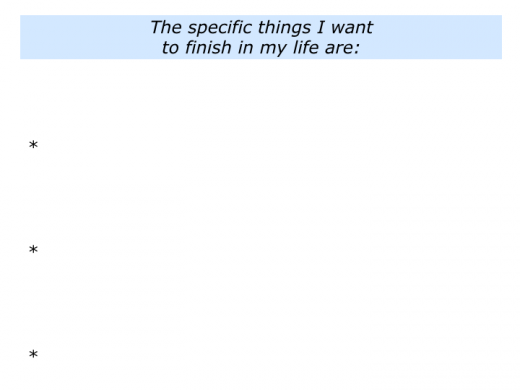
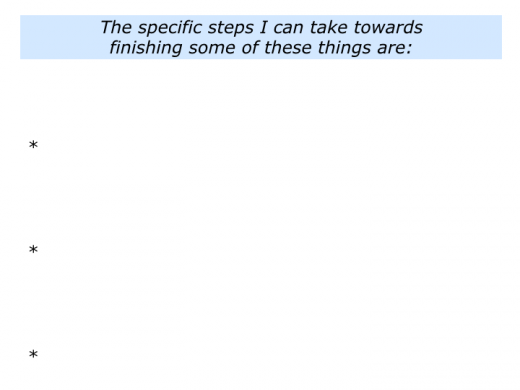
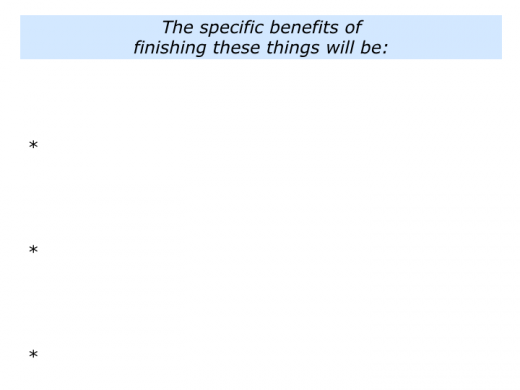
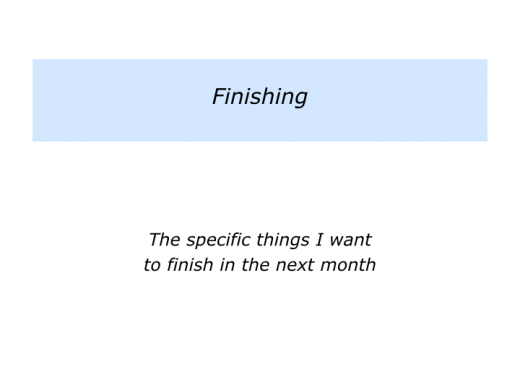
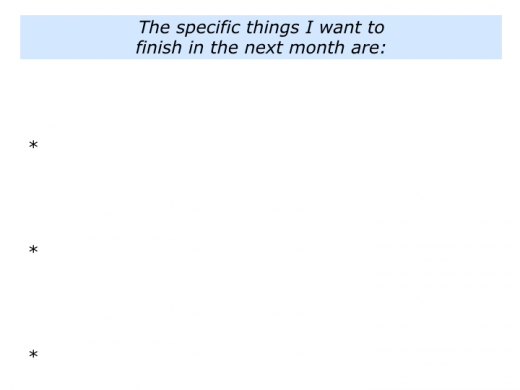
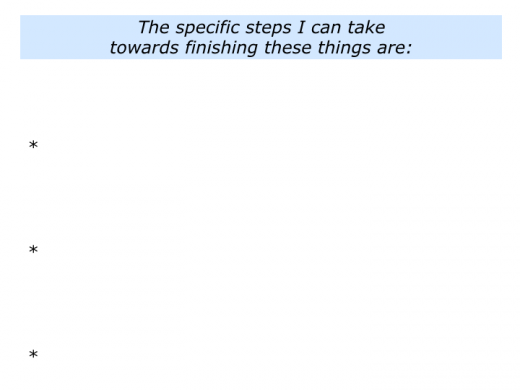
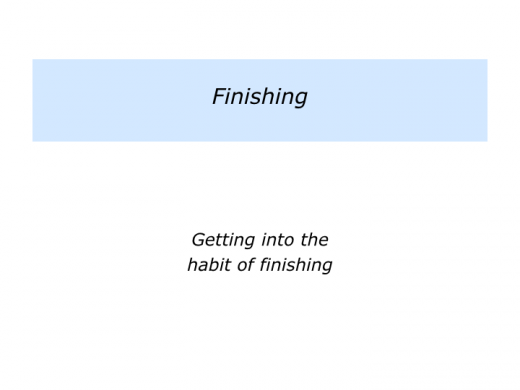
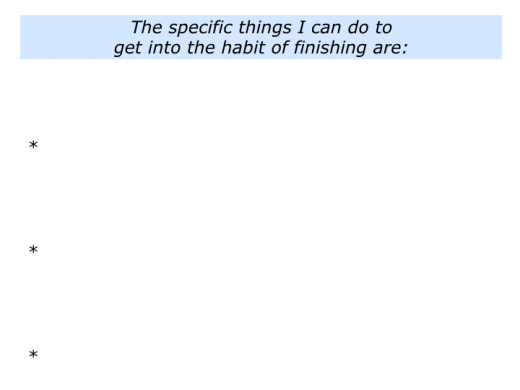
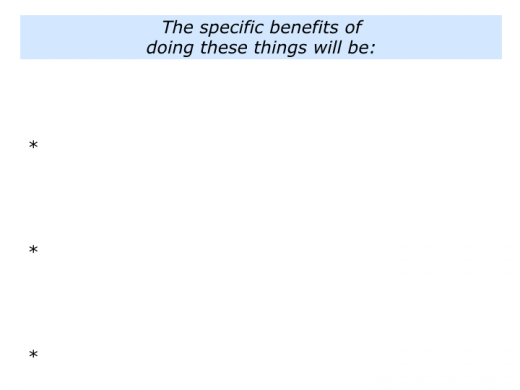




Leave a Reply